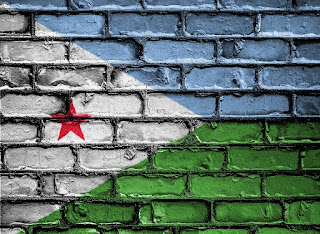Djibouti, a small but strategically located country in the Horn of Africa, has a rich and diverse history that dates back thousands of years. Situated at the crossroads of Africa, the Middle East, and Asia, Djibouti has been a melting pot of cultures and civilizations throughout its history.
The area that is now Djibouti has been inhabited by various ethnic groups for millennia. The earliest known inhabitants were the Afar people, who are believed to have lived in the region for over 3,000 years. The Afar are a nomadic pastoralist people who have traditionally lived in the harsh deserts and arid plains of Djibouti.
In ancient times, Djibouti was part of the Land of Punt, a region that was known for its trade with ancient Egypt. The Land of Punt was a source of exotic goods such as myrrh, ebony, and gold, which were highly prized by the ancient Egyptians. Djibouti's strategic location on the Red Sea coast made it an important trading hub for merchants from all over the ancient world.
In the 7th century, Djibouti came under the influence of Islam, as Arab traders and missionaries spread the religion throughout the region. Islam quickly became the dominant religion in Djibouti, and it remains so to this day. The arrival of Islam brought with it a new set of cultural influences, including the Arabic language and Islamic architecture.
In the centuries that followed, Djibouti was ruled by various Somali sultanates and Ethiopian kingdoms. The region was also a key battleground in the rivalry between European colonial powers, particularly France and Britain. In the late 19th century, Djibouti came under French colonial rule and was known as French Somaliland.
During the colonial period, Djibouti served as an important port and naval base for the French Empire. The city of Djibouti, the capital of the country, grew rapidly as a result of French investment in infrastructure and development. After gaining independence from France in 1977, Djibouti has continued to serve as a key strategic location for international trade and military operations.
Today, Djibouti remains a diverse and multicultural country, with a population that includes Afar, Somali, and Arab ethnic groups. The country is known for its stunning natural beauty, including the otherworldly landscapes of Lac Assal, a salt lake that is one of the lowest points on Earth.
In conclusion, Djibouti's history is a fascinating tapestry of cultures and civilizations that have left their mark on this unique corner of the world. From ancient trade routes to colonial rule to modern independence, Djibouti's history is a testament to the resilience and adaptability of its people. As Djibouti continues to develop and grow in the 21st century, it will no doubt continue to be an important player on the global stage.



0 Comments